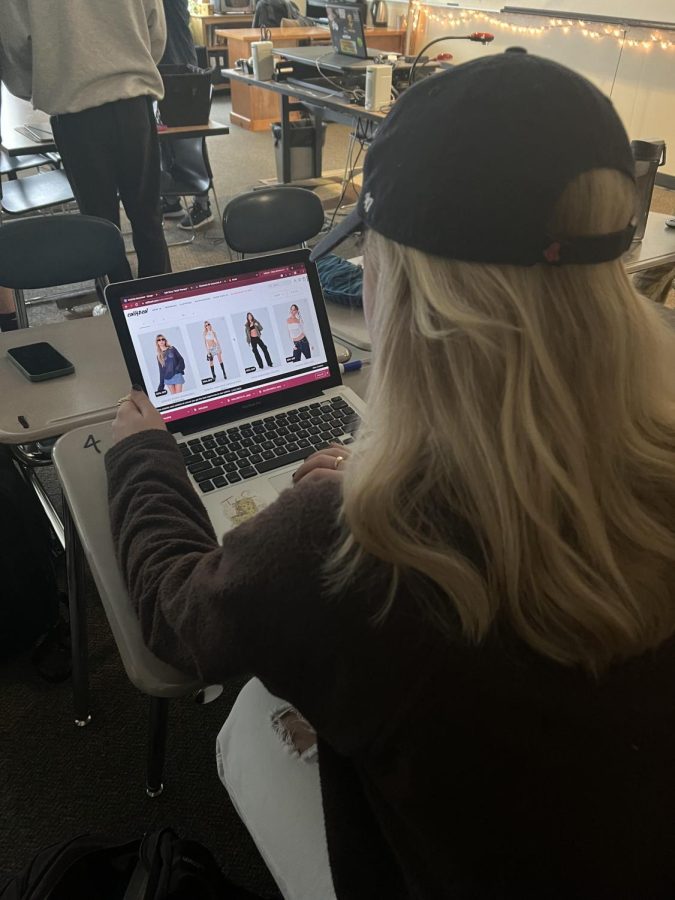Students rely on retail therapy to buy their worries away
A student browses an online store. She hopes to make a purchase!
Coping mechanisms are conveyed in many different ways, whether it is taking deep breaths, expressing a concern to a loved one, or jotting down potential conflicting feelings on a piece of paper. However, one mechanism generally receives little normality and attention. Retail therapy.
Although fashion merchandising can invoke financial strains, some students at WVHS find both pros and cons to the given matter. While a select group of students prioritize other coping habits, some students find that retail is a temporary fix to a major issue.
Junior Alina Jakobson has a generally beneficial impact when it comes to purchasing any item of value. “Anytime I shop, material things do make me feel amazing and significantly better,” She clarified that “they don’t obviously fix everything,” but she receives “instant gratification” following the purchase.
However, not all students share the same perspective as Jakobson. Ruby Dean, a sophomore, finds that investing in purchases to feel satisfied provides a short lived happiness. She said that “experiences and people bring you more happiness than the pair of trendy shoes that are overpriced.” She believes that any form of retail is a minor fix to a situation or problem.
Like Dean, students share similar takes in relation to universal spending. One anonymous WVHS student claimed that an accumulation of items does nothing to “address the core issues.”
One anonymous Wilsonville High School student sees both sides of retail therapy. They claimed that purchasing something can boost your confidence, but on the other hand, it can create a “self destructive habit.”
In general, retail therapy has little to no benefit on someone’s personal mental health, according to several students. To technology, makeup, or clothing, while it has its temporary benefits, many students advise caution when it comes to purchasing as pursuit of happiness, or overall well being.











